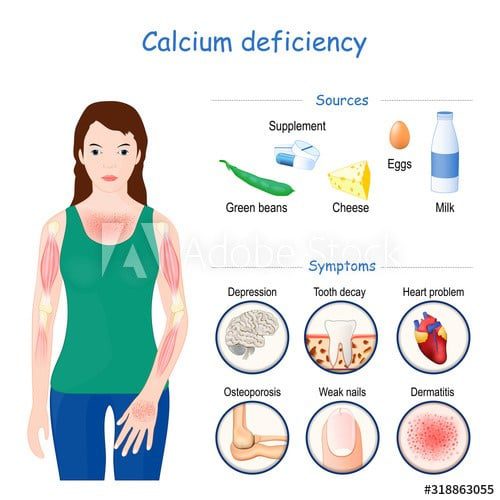Calcium is an essential mineral that plays a crucial role in maintaining overall health, and is particularly important for women. Calcium is necessary for strong bones and teeth, as well as for proper muscle function, nerve transmission, and blood clotting. In this blog, we will discuss the importance of calcium for women’s health and how to ensure that you are getting enough of this vital nutrient.
Why is Calcium Important for Women’s Health?
Calcium is important for women’s health because it helps prevent osteoporosis, a condition that weakens bones and increases the risk of fractures. Women are at higher risk of developing osteoporosis than men because they have smaller, thinner bones and lose bone density faster as they age. Adequate calcium intake, along with other lifestyle changes, can help reduce the risk of osteoporosis and fractures in women.
Calcium also plays a vital role in muscle function, nerve transmission, and blood clotting. Without enough calcium, women may experience muscle cramps, fatigue, and other symptoms related to poor muscle and nerve function.
How Much Calcium do Women Need?
The recommended daily intake of calcium for women varies depending on age and other factors. Here are the recommended amounts of calcium for women according to the National Institutes of Health:
- 19-50 years old: 1,000 milligrams per day
- 51 years and older: 1,200 milligrams per day
Calcium can be found in many foods, including dairy products, leafy green vegetables, tofu, nuts, and fish. However, it can be challenging to get enough calcium from food alone. That’s why many women choose to take a calcium supplement to ensure they are getting enough of this vital nutrient.
How Can Women Ensure They Get Enough Calcium?
Here are some tips for women to ensure they are getting enough calcium:
- Include calcium-rich foods in your diet: Dairy products like milk, cheese, and yogurt, as well as leafy green vegetables, tofu, nuts, and fish, are all good sources of calcium.
- Take a calcium supplement: If you’re not getting enough calcium from food, consider taking a calcium supplement. Talk to your doctor before starting any supplement regimen.
- Get enough vitamin D: Vitamin D is necessary for calcium absorption, so make sure you’re getting enough through sun exposure or supplements.
- Limit caffeine and alcohol: Caffeine and alcohol can interfere with calcium absorption, so limit your intake of these beverages.
- Exercise regularly: Weight-bearing exercises like walking, running, and weightlifting can help strengthen bones and reduce the risk of osteoporosis.
In conclusion, calcium is a vital nutrient for women’s health. Adequate calcium intake, along with other lifestyle changes like regular exercise and limiting caffeine and alcohol, can help reduce the risk of osteoporosis and fractures. By prioritizing calcium intake, women can maintain strong bones and overall health throughout their lives.




